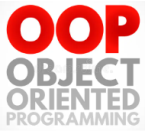How to prepare for a FAANG interview after a layoff in 2025
With the evolving landscape, whether it’s the business/job market or technological developments, the opportunities within it are also changing. If you are one of the many who have recently experienced a layoff, the prospect of landing a role at a FAANG company, i.e., Facebook, Apple, Amazon, Netflix, or Google, might seem daunting at first; however, with the right preparation, it is certainly within reach.
As the year progresses, many often wonder how to effectively prepare for these highly competitive tech interviews, especially after a period of unemployment that has been stigmatizing. What strategies and insights can guarantee candidates regain their footing in the industry and stand out in this pool of applicants? Having said that, let’s explore the essential steps for FAANG interview preparation that will help regain your confidence and excel in the job-landing process with these tech giants.
1. Recalibrate your mindset by overcoming the layoff stigma
A layoff is not always a reflection of individual performance; so, do not perceive it as you not being good enough at what you do. The tech dynamics of 2024-25 are undergoing a volatile phase, where companies are restructuring due to various macroeconomic reasons, often resulting in the departure of high-performing employees. Since the impacts of macro factors are not in your hands, what you can do is mentally reframe the event. While imposter syndrome is a natural response to sudden unemployment, it can be managed.
- Acknowledge and reframe: First, understand that layoffs are a common industrial occurrence; there’s no fixed schedule for them. Your self-worth is separate from the corporate decision. Simply, view this unexpected layoff as a mandated break to focus intensely or reframe your career goals.
- Rebuild confidence: Reflect on your past accomplishments. Reform your portfolio with major projects, positive performance reviews, and successful launches to date. This updated work portfolio is a testament to your professional capabilities and is crucial for behavioral interviews.
- Set a routine: Make your job search your full-time job, while also dedicating specific time blocks for studying, applying, and networking. A disciplined routine provides structure and a sense of control that supplements your mental well-being.
2. Conduct a rigorous skill audit
Before getting into the flow of rigorous studying again, you must first recognize your precise strengths and weaknesses. Why? To excel in FAANG interviews, one must have a strong foundation in Data Structures and Algorithms (DSA).
Start your skill audit by solving 10-15 problems every day across core categories (arrays, strings, graphs, dynamic programming, etc.) on trusted coding platforms like LeetCode. Then, analyze your performance in comparison to the expected solution, such as whether you had any struggles with the underlying logic or with translating your solution into optimized, bug-free code. If yes, note the specific modern data structures and algorithmic patterns that you need to master. This self-audit of your tech skills helps curate a personalized study plan for targeted and efficient interview prep.
3. Adopt a structured learning path for maximum efficiency
When you feel like your time is running out, you will often resort to a chaotic approach and randomly solve problems, resulting in burnout and slow progress. To prevent this, you must follow a curated curriculum that builds knowledge with progressive learning. An effective structured learning path typically looks like this:
- Core fundamentals: Mastering the time complexity of essential operations for fundamental and modern data structures (e.g., HashMaps, Tries, Heaps).
- Algorithmic patterns: Accurately recognize problem-solving patterns like Two Pointers, Sliding Window, BFS/DFS, and Binary Search. Understanding is way more effective than memorizing solutions.
- Topic-focused practice: Dedicate time blocks to each topic until you master it. For example, spending one week mastering graph problems and another on dynamic programming.
- Mock assessments: When you feel ready, take timed tests that simulate real interview conditions.
Reliable online resources, such as Algocademy, are specifically designed to provide users a systematic, progressive skill-building experience, moving from foundational concepts to advanced problem-solving.
4. Master modern system design and async patterns
While DSA is the baseline, system design is distinct for experienced candidates. In 2025, the focus of tech interviews inclined towards a renewed emphasis on foundational scalability principles over abstract, company-specific architectures.
- Solidify the basics: Expect to design a core system, like a URL shortener, a chat system, or a video streaming service. This necessitates a Focus on articulating the trade-offs between different databases, caching strategies, and load-balancing techniques.
- Understand asynchronous patterns: As industries normalize distributed systems, you must also grasp concepts like message queues (Kafka, RabbitMQ), event-driven architecture, and pub/sub models. This will enable you to hold effective discussions about how you’d handle eventual consistency, backpressure, and idempotency in your designs.
- Low-level considerations: If you are interviewing for backend roles, expect in-depth discussions on concurrency, threading models, and network protocols.
5. Simulate the real thing with mock interviews
A remote FAANG interview is normally a highly pressured environment. Therefore, practicing in a realistic setting is the most effective way to build confidence and work on non-technical gaps.
- Find the right partners: Leverage the right platforms or seek out other seasoned peers in your network. This will provide critical, constructive feedback not just on your solution and skills, but also on your communication.
- Full simulation: Take mocks with video calls, a collaborative code editor, and a strict timer. Regularly practice verbalizing your thought process and reasoning clearly from the moment you read the problem.
- Focus on communication: Interviewers often assess how you handle ambiguity and whether you collaborate to reach a solution. This involves asking clarifying questions, discussing trade-offs, and reacting positively to hints.
Wrapping up
A layoff in 2025 can be a setback in your career growth, but it’s not a definition. By critically following the above steps and reframing your learning habits, you can transform this challenging period into a strategic career pivot. Yes, the market is competitive, but the demand for truly skilled engineers with mastery of modern data structures and system design principles remains high.















38 Responses
Không giống với các trang web không rõ nguồn gốc, 888slot game đầu tư nghiêm túc vào hệ thống quản lý rủi ro và bảo vệ người dùng. Tất cả các giao dịch tài chính đều được mã hóa, đồng thời nền tảng cung cấp công cụ tự kiểm soát cho người chơi như giới hạn đặt cược và tính năng tự loại trừ.
Downloaded the Bajibet app. Hopefully it’s smooth sailing and easy wins! It’s very user-friendly. I suggest this for all my game-loving buddies: bajibetapp
Your article helped me a lot, is there any more related content? Thanks!
Bạn có thể xem nhanh tỷ lệ kèo khoảng 15 phút trước khi trận đấu chính thức bắt đầu. Chúng tôi cho phép người chơi so sánh ODDS trước khi vào tiền. Ngoài ra, khuyến mãi 188v còn phát sóng trực tiếp với hơn 4.500+ giải đấu mỗi ngày như: NHA, Primera, Ligue 1, Division, Bundesliga,…
Bạn có thể xem nhanh tỷ lệ kèo khoảng 15 phút trước khi trận đấu chính thức bắt đầu. Chúng tôi cho phép người chơi so sánh ODDS trước khi vào tiền. Ngoài ra, khuyến mãi 188v còn phát sóng trực tiếp với hơn 4.500+ giải đấu mỗi ngày như: NHA, Primera, Ligue 1, Division, Bundesliga,…
Your point of view caught my eye and was very interesting. Thanks. I have a question for you. https://accounts.binance.info/zh-TC/register?ref=DCKLL1YD
I don’t think the title of your article matches the content lol. Just kidding, mainly because I had some doubts after reading the article. https://accounts.binance.info/register-person?ref=IXBIAFVY
Can you be more specific about the content of your article? After reading it, I still have some doubts. Hope you can help me. https://accounts.binance.com/si-LK/register-person?ref=LBF8F65G
Your point of view caught my eye and was very interesting. Thanks. I have a question for you.
Thanks for sharing. I read many of your blog posts, cool, your blog is very good. https://accounts.binance.info/ph/register-person?ref=IU36GZC4
Hey 123win58, what’s the scoop? Got some good games and promos going on? I’m always looking for a new spot to try my luck. Give me a reason to sign up! Play now at: 123win58
محتوا پادشاهه، ولی اگه سایتتون از نظر فنی مشکل داشته باشه، گوگل اصلاً محتواتون رو نمیبینه! مشکلاتی مثل سرعت پایین، خطاهای سرچ کنسول و ساختار لینکسازی غلط، ترمز رشد سایت هستن. سایتیگو قبل از هر کاری، یک آنالیز تکنیکال عمیق انجام میده و زیرساخت رو اصلاح میکنه. برای اینکه خیالتون از بابت سلامت فنی سایت راحت باشه، پیشنهاد میکنم از خدمات سئو تکنیکال و بهینه سازی فنی سایت استفاده کنید.
Heard some buzz about 66betcasino. Gave it a go and it’s not bad. Got a few slots I dig and the live games were alright. Decent spot to check out. See what the hype is about at 66betcasino.
Winpotsport… chasing those big wins! Let’s see if they deliver! Give it a look at: winpotsport
Nustar online game is something else. I mean, I’ve played a few online games, but this one stands out. Has a certain charm to it. If you’re bored, give it a whirl. It might hook you. Play it here: nustaronlinegame
خیلی جاها لینک پروفایلی EDU میفروشن که نو-فالو هست و ارزشی نداره، اما ادزنو روی فالو بودن لینکها تأکید داره که خیلی مهمه. انتقال قدرت از یک سایت دانشگاهی به سایت شما میتونه رتبهها رو زیر و رو کنه. من نتیجهی خیلی سریعی گرفتم. به نظرم پکیج 50 بک لینک EDU با کیفیت برای هر پروژهای واجبه.
Can you be more specific about the content of your article? After reading it, I still have some doubts. Hope you can help me. https://www.binance.com/pt-PT/register?ref=KDN7HDOR
I don’t think the title of your article matches the content lol. Just kidding, mainly because I had some doubts after reading the article.
Can you be more specific about the content of your article? After reading it, I still have some doubts. Hope you can help me.
I don’t think the title of your article matches the content lol. Just kidding, mainly because I had some doubts after reading the article.
Thanks for sharing. I read many of your blog posts, cool, your blog is very good. https://accounts.binance.com/lv/register?ref=SMUBFN5I
Thank you for your sharing. I am worried that I lack creative ideas. It is your article that makes me full of hope. Thank you. But, I have a question, can you help me? https://accounts.binance.com/pl/register?ref=UM6SMJM3
Your point of view caught my eye and was very interesting. Thanks. I have a question for you.
Thanks for sharing. I read many of your blog posts, cool, your blog is very good.
Thank you for your sharing. I am worried that I lack creative ideas. It is your article that makes me full of hope. Thank you. But, I have a question, can you help me?
Your article helped me a lot, is there any more related content? Thanks! https://www.binance.com/register?ref=IHJUI7TF
Your article helped me a lot, is there any more related content? Thanks!
Can you be more specific about the content of your article? After reading it, I still have some doubts. Hope you can help me.
Can you be more specific about the content of your article? After reading it, I still have some doubts. Hope you can help me.
I don’t think the title of your article matches the content lol. Just kidding, mainly because I had some doubts after reading the article.
Thank you for your sharing. I am worried that I lack creative ideas. It is your article that makes me full of hope. Thank you. But, I have a question, can you help me?
I don’t think the title of your article matches the content lol. Just kidding, mainly because I had some doubts after reading the article.
Thank you for your sharing. I am worried that I lack creative ideas. It is your article that makes me full of hope. Thank you. But, I have a question, can you help me?
Can you be more specific about the content of your article? After reading it, I still have some doubts. Hope you can help me.
Thanks for sharing. I read many of your blog posts, cool, your blog is very good. https://accounts.binance.com/pl/register?ref=UM6SMJM3
I don’t think the title of your article matches the content lol. Just kidding, mainly because I had some doubts after reading the article.
I don’t think the title of your article matches the content lol. Just kidding, mainly because I had some doubts after reading the article. https://www.binance.info/register?ref=IXBIAFVY
Thanks for sharing. I read many of your blog posts, cool, your blog is very good.